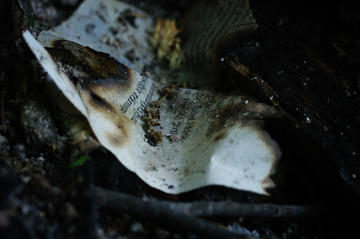
As arrests of journalists and media closure continue, the International and the European Federation of Journalists (IFJ/EFJ) call on the European Union to take additional steps to hold Turkish president Erdogan accountable for press freedom breaches
Since the coup aimed at toppling President Erdogan failed on 16 July, the IFJ and EFJ have been alerting on the number of arrests of journalists and media closure for being allegedly associated with the pro-Gülen movement accused of being behind the failed coup.
The situation came to a point where local media’s fear to be arrested is leading to an increasing muzzlement of the press, thus infringing fundamental human rights such as freedom of expression and the public’s right to know. According to IFJ/EFJ latest information:
On 27 July, arrest warrants were issued against 47 former staff of the Zaman newspaper, an official said. Zaman daily columnist, Şahin Alpay, has been detained after police raided his house in the early morning hours. Lale Sariibrahimoglu, who used to work for Zaman and Today’s Zaman and currently reporting for IHS Jane’s Defence Weekly, was taken by police from her home. Columnist Nuriye Akman (former Zaman Daily) is also in custody.
On 27 July, the IFJ and EFJ listed at least 28 journalists detained, namely Yakup Sağlam, İbrahim Balta, Seyit Kılıç (former TRT reporter), Bayram Kaya, Cihan Acar, Nazlı Ilıcak, Hanım Büşra Erdal, Bülent Mumay (Birgün daily) ,Zeynel Abidin Bulut (Pro-Kurdish daily Azadiya Welat), Zehra Dogan (JINHA), Sahin Alpay (former Zaman), Nuriye Akman (former Zaman), Lale Sariibrahimoglu (former Zaman), Ali Bulaç, Mümtazer Türköne, Zafer Özsoy, Ahmet Metin Sekizkardeş (Cihan Medya Deputy Chair), Cuma Kaya, Murat Avcıoğlu, Osman Nuri Arslan, Şeref Yılmaz (Irmak TV), Hüseyin Turan, Faruk Akkan, Bünyamin Köseli (Aksiyon weekly), Abdullah Kılıç (Meydan), Hüseyin Aydın (Cihan News Agency), Cuma Ulus, Mustafa Erkan Acar (Cihan News Agency).
According to Bianet, Dicle News Agency (DİHA) and Özgür Gündem websites were also blocked on 27 July by the Telecommunications Communication Presidency (TİB) due to "administrative injunction". Such a blocking is not the first of its kind since DiHA has been blocked 43 time this year and Özgür Gündem twice.
Last week, 20 independent online news portals, including Haberdar, Meydan and Medyascope, had already been shutdown following a decision of the TİB.
On 27 July in the evening the Turkish government issued a new decree ordering the closure of 131 media organisations. According to the decree published in the official gazette, three news agencies, 16 television channels, 23 radio stations, 45 daily newspapers, 15 magazines and 29 publishing houses have been ordered to shut down. Media shut down include new agency Cihan Haber Aöansı, Bugün tv, Can Erzincan tv, Kanaltürk, Samanyolu tv, Bugün, Taraf, newspapers Zaman and Today's Zaman, newspaper Yarına Bakış magazines Sızıntı, Aksiyon, Nokta.
IFJ president Philippe Leruth said: “ The European union must take a stand and hold President Erdogan accountable for breaching Human rights convention and muzzling the press. Global journalists are highly concerned by the escalation of attacks against the press in a country that calls itself a democracy. This situation must end immediately.”
EFJ president Mogens Blicher Bjerregard and EFJ general secretary Ricardo Gutiérrez called on the European Union and the Council of Europe to act. "We can't remain silent while journalists are being arrested by dozens right here in front of us. President Juncker and High Representative Mogherini must do everything in their power to end this worrying situation," said Mogens Blicher Bjerregard.
The federations reported all these cases to the Council of Europe Platform for the promotion of journalism and the protection of journalists.
Questa pubblicazione è stata prodotta nell'ambito del progetto European Centre for Press and Media Freedom, cofinanziato dalla Commissione europea. La responsabilità sui contenuti di questa pubblicazione è di Osservatorio Balcani e Caucaso e non riflette in alcun modo l'opinione dell'Unione Europea. Vai alla pagina del progetto
Log in or create a user account to comment.

 EU must hold Turkish President accountable for press freedom violations
EU must hold Turkish President accountable for press freedom violations




 Tutti i contenuti disponibili sul sito di Osservatorio Balcani e Caucaso sono distribuiti con licenza
Tutti i contenuti disponibili sul sito di Osservatorio Balcani e Caucaso sono distribuiti con licenza  To Top
To Top